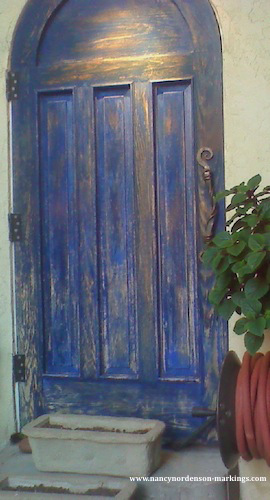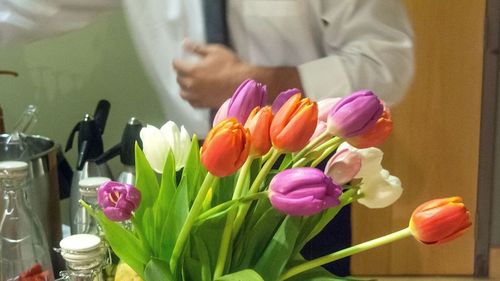New for this Christmas season, Paraclete Press has issued a “Reader’s Edition" of a modern Christmas classic: GOD WITH US: Rediscovering the Meaning of Christmas, edited by Greg Pennoyer and Gregory Wolfe. Last year, the first hardcover illustrated edition of this book was a #1 bestseller on Amazon for a couple weeks and sold more than 25,000 copies. This year, Paraclete has re-designed the book as a softcover to make it more affordable and accessible to readers.
The book includes 5 groups of readings, covering the time before and after Christmas. Eugene Peterson wrote the introduction, followed by the late Richard John Neuhaus, Scott Cairns, and Luci Shaw who wrote the readings for weeks one, two, and three, respectively. Kathleen Norris wrote the readings for the week before Christmas, and Emilie Griffin wrote about the days between Christmas and Epiphany. Interspersed with the readings are brief histories about the church season and feast days written by my friend Beth Bevis.
Earlier this year, I featured Emilie Griffin on this blog when she generously wrote an endorsement for my book Finding Livelihood. I’m thrilled to have her back on the blog, this time for an interview about GOD WITH US and her contribution to it as well as her insights on Christmas and the anticipatory time of Advent leading up to it. Emilie is the author of Small Surrenders: A Lenten Journey; The Reflective Executive: A Spirituality of Business and Enterprise; Clinging: The Experience of Prayer;Wilderness Time: A Guide for Spiritual Retreat; and Souls in Full Sail: A Christian Spirituality for the Later Years.
How does the title GOD WITH US apply to the four weeks before Christmas?
EG: I remember how in my childhood the anticipation of Christmas was in a sense the most important thing about the holiday. I still have a memory of childhood Christmas trees – spruce and pine, mostly – and the scent of needles on the floor. My grandmother who kept house for us, was not fond of the vacuuming but I thought the whole thing was wonderful. Even though our tree was not as grand as others, it was the expression of an inner meaning, a promise.
How would you define the observance of Advent? Why is the observance of Advent spiritually necessary?
EG: One of the editors of our book, Greg Pennoyer, says in his introduction: "Like most adults I have a difficult time relating to Christmas." He describes how his encounter with the liturgical tradition changed his mind, changed his heart, in a sense made Christmas possible for him. My experience is not exactly the same, but in Advent we open ourselves up to that encounter.
Your section of the book is from Christmas to Epiphany. Can you give us a preview of what this week holds?
EG: My section actually starts on the day after Christmas. I conceived of these days as a way to experience the friendship of Jesus, to walk and talk with him as the disciples did. At the same time we must deal with such difficult feasts as the Feast of Stephen, with the martyrdom of Stephen, and the Feast of the Holy Innocents, with the slaughter of the holy innocents, who are also martyrs. Christmas doesn't seem quite so jolly when it includes these events.
The contributors of GOD WITH US come from a variety of traditions within the Christian faith. How does the observance of Advent provide common ground among these traditions? How can the observance of Advent provide common ground between liturgical and nonliturgical traditions?
EG: Some of our writers emphasize the differences among the liturgical traditions, but I am very conscious of similarities. There are two Roman Catholics, two Anglicans/Episcopalians, and two Orthodox. Every one, with the exception of Richard Neuhaus, is a poet. A few are also playwrights. This highly charged creativity helps us to appreciate the beauty and wonder of the amazing experience of Christian faith.
Many readers of GOD WITH US have never "done" Advent before. They may have thought of Advent as something for the liturgical churches, if they thought of it at all. This book makes it possible to get ready for Christmas, no matter what church you belong to, even if you're not in any church. It helps us to deal with the yearning, the hope and anticipation, the waiting for a Savior, which is common to all. The Bible heralds this. But even those who are not in Bible churches report a longing, a need, a certain anxiety and a hope for the future.
Is Christmas just for the children? Just for the liturgical churches? I don't think so. God is with all of us, all the time. But God wants us to come closer, to know him better, to know each other better as well. I'm glad if this book can have some small part in that conversation.
How would you recommend that a person who is already feeling stressed by too many work-, family-, and holiday-related expectations integrate the reading of GOD WITH US into his or her Advent schedule without considering it just one more thing he or she “should” do?
EG: I am aware of all the pre-Christmas stress because I experience it myself. I mark the first day of Advent on my calendar but sometimes the date slips past, with infections, travel, speaking engagements, visiting, shopping lists, Christmas card preparation, whatever. Even so I find myself choosing things that remind me of the inner meaning of the Holidays. Books like the latest one by the late Oliver Sacks, Gratitude. Advent cards that point me to the birth of Christ. The one we received this year reads, "O child of promise come/O come Emmanuel/come prince of peace/to David's throne/Come god with us to dwell." An Advent concert called "A Time for Hope and a Time for Joy", taking place at our local cathedral on Tuesday, December 15. After the attacks in Paris I bought a book by Jonathan Sacks, former Chief Rabbi of Britain, called Not in God's Name: Confronting Religious Violence. It is about attempts to reconcile Christianity, Judaism, and Islam, and the angels figure importantly, at least metaphorically, here. Eventually I let go and surrender to God's Word and work in me. Grace takes hold and a certain transformation begins.
Is there a particular day of the year that is the most important to you in your own personal, spiritual life? If so, has it been the same day over the years or has the specific day changed over time?
EG: I know I should pick a day in the Advent or Christmas season but I have to choose September 29th, Feast of Michael and All Angels. There is something about the loving presence of the angels in every major event of the liturgical year that I find deeply moving. Their love and guardianship at the Annunciation, the Epiphany, the great Marian feasts, not to mention the Easter season are worth mentioning. Then there are the angelic visits in the Hebrew Scriptures: Abraham and his visitors at Mamre, Jacob wrestling with the angel, Elijah's encounter with God, Paul on the Damascus Road.
~~~
You can order GOD WITH US directly from Paraclete Press or Amazon or wherever books are sold.

















